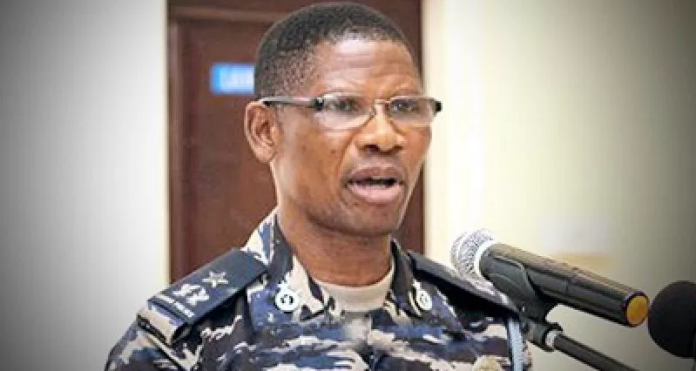ACP Benjamin Kwasi Agordzo, Assistant Commissioner of Police (Rtd), says the Ghana Police Service, like other security institutions, need a complete overhaul in their recruitment and operations to tackle a systemic challenge which is being challenged in court by a private citizen and CSO, IMANI-Africa.
Prof. Kwesi Aning and the IMANI Centre for Policy and Education have jointly sued the government to enforce some Articles in the Constitution which prevent the President from making appointments to some public offices and terminating same.
Among the offices include the Inspector General of Police, Director General of the Prisons Service among others.
But the former police officer believes the reliefs they are seeking are shallow and do not address the fundamental challenge confronting the respective institutions.
He says what is required is an interpretation of a certain component of issues concerning their career under the constitution, as well as a legal reform or constitutional amendment regarding the appointment process, the removal process and their term of office based on predetermined grounds that may be specified in the constitution or any other document.
In his opinion, going to the Supreme Court to seek interpretation on termination procedure and appointment alone is not the solution.
“In fact, for a good reform of the Police Service, of Prison Service, Fire Service, and Immigration Service, what we need is a constitutional interpretation of an aspect of their career or something with respect to termination. What we need is a comprehensive approach in the way of a legal reform or constitutional amendment in respect of how they are appointed upon a stated criterion; how they will be dismissed on stated grounds, which can be stated in the constitution or any other document, and then also the tenure of office. Is it for instance, non-renewable? Those are the issues that we must address,” he said on the KeyPoints Saturday, March 16, 2024.
ACP (Rtd) Agordzo further explained that apart from the request for interpretation on termination, “the question is whether they are attempting to include something unconstitutional in the constitution. As it is, the constitution is silent on the procedure for dismissing the Inspector General of Police. Therefore, establishing those grounds in law is essential.”
“But to just go to the Supreme Court and ask for the fact that an interpretation is given on just the termination in my opinion does not solve the problem. For instance, as part of their writ, they are trying to ask the Supreme Court to come out with something in respect of the fact that the termination must be on stated grounds. Where are they getting that from? In which document? It’s not part of the constitution.
“Neither is it part of any document in the Police Service that I know of about the IGP. So, are they doing an interpretation? Is it something they are trying to import into our constitution because it does not exist? So, you see, it’s not a matter of just going to court. It’s a matter of going to court on stated grounds, and those grounds must be stated in law. As we speak now, the Article 202(1) gives the power to the President to appoint the Inspector General of Police in consultation with the Council of State. How he’s going to be removed is not stated in any part of the constitution,” he told host, Alfred Ocansey.
By Jazmin Asumadu







